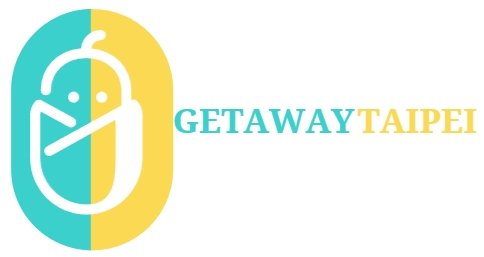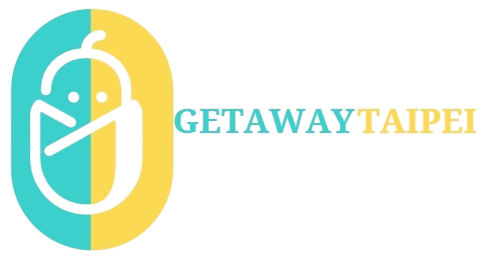Are you on a quest to further your knowledge on a certain subject? Look no further! We’ve curated the perfect list of the best subject education resources, including books, websites, and more. Get ready to dive into an educational adventure and expand the depths of your knowledge!
1. Unlocking Educational Resources: A Comprehensive Guide
- Syndicating Educational Resources
Providing access to educational resources is a key element of the learning process, both inside and outside the classroom. Syndicating resources can be done through a variety of different methods, such as by displaying content within the classroom, sharing it with other teachers or distributing it through learning management systems. Syndication is the process of transferring educational resources to people who need them. It provides users with quick access to the content they need. - Identifying Suitable Resources
Finding suitable resources for your class can sometimes be a challenge. It’s important to be aware of the different resources available, and to understand their suitability for particular situations. Resources can come from a variety of sources, including libraries, online databases, educational publishers, and teacher-contributed materials. It’s important to research different sources and compare their quality and accuracy before selecting the most appropriate resources. - Storing Educational Resources
Storing resources securely is essential for ensuring their accessibility and longevity. Digital files should be properly archived and backed up using a variety of appropriate methods, such as cloud storage or local drives. Additionally, most educational resources should be shared with other teachers, to ensure their knowledge can be transferred to future generations. - Optimizing Accessibility
Accessibility is an important factor to consider when distributing educational resources. Ensuring high-quality resources are accessible on different platforms is important for allowing users to access the content in a variety of different ways. Additionally, optimizing content for accessibility will help ensure it’s accessible to users with disabilities. - Respecting Copyrights
It’s essential to always respect copyrights when distributing educational resources to avoid any potential legal issues. All content should only be used with appropriate permission, and any content shared should have proper attribution. Additionally, content should only be shared with users who have been given permission to access it.
Syndicating, identifying, storing, optimizing, and respecting copyrights all play a key role in ensuring educational resources are available to those who need them. By following the steps outlined above, educators can ensure they’re providing learners with the resources they need, while taking the necessary precautions to do so legally and responsibly.
2. Building the Perfect Study Arsenal: Books, Apps, and More
As the saying goes, knowledge is power. If that’s the case, then it turns out that having the right tools for studying is just as important as having the knowledge itself. Having the right books, apps, and other tools on hand can make it easier to understand difficult concepts, review important material, and stay focused on your goal.
One strategy for building the perfect study arsenal is identifying the types of learning styles that you prefer. Whether you are an auditory, visual, or tactile learner, investing in the tools that work best for you can make studying smarter and more effective.
Books
Good old-fashioned books can be one of the most effective tools in your study arsenal. Books offer the opportunity to delve deep into complex ideas. A good book may provide detailed illustrations and explanations for difficult concepts that can be used as a reference point throughout the studying process. Here are a few types of books that may be beneficial for studying:
- Textbooks – textbooks provide the most comprehensive and accurate information on any given subject.
- Study Guides – study guides provide summaries and review materials to help you understand and retain key concepts.
- Reference & Dictionaries – reference books can provide valuable information and definitions for unfamiliar words or concepts.
Apps
Using apps for studying can be beneficial because many of them come with features such as flashcards, quizzes, and tests, which can help you review and retain material. Here are a few widely used apps:
- Brain.fm -Brain.fm has curated playlists designed to stimulate different areas of the brain for more focused and relaxed studying.
- Quizlet – Quizlet allows you to create custom flashcards and study materials that can be accessed from any device.
- Forest – Forest is an app to help people stay focused by planting virtual trees that will be killed off if the user leaves the app.
Other Resources
In addition to books and apps, there are some other useful resources that you can use in your study arsenal. Consider taking advantage of these online resources:
- Online Courses – online courses are great because they allow students to learn at their own pace from the comfort of their own home.
- Webinars & Lectures – webinars and lectures can provide insight into difficult concepts and help students make connections across various topics.
- Tutors – tutors can provide personalized instruction and help students understand difficult concepts.
3. Exploring the Boundless Resources of Subject Education
As a student, it is our duty to explore the resources we have in order to understand the subject that we are studying. For example, in education, there are a multitude of sources providing information and guidance. Some of these include:
- Books: Books represent a classic way of navigating knowledge. From textbooks for specific topics to hardbound encyclopedias, books are an invaluable resource to aid in learning.
- Online Sources: Online sources take the form of podcasts, lecture-style videos, textbooks formulated for digital readers, and more. This great range of sources provides students flexibility in their learning.
- Educational Centers: Educational centers, like libraries and museums, can be a visit for anyone seeking knowledge. People of all ages can find something that speaks to them.
When looking for new subject education, students must also remember to expand their search by asking for help from fellow students, attending lectures, and inquiry into other forms of knowledge—such as meditation and the arts. This is where limitless exploration of education really starts.
Students can utilize all the sources mentioned in numerous creative ways. For example, they can take notes when reading books, discuss ideas with classmates, or record lectures for future reference. Also, attending lectures, classes, and seminars can be helpful too.
While exploring the boundless resources of education may be challenging, taking advantage of these sources can ultimately make education more fun and give students a deeper understanding of the material. There is no limit to the opportunities available to gain knowledge in any given field.
4. Effective Learning Tools for Everyone: From Beginners to Pros
Learning doesn’t have to be a chore. With the right tools, it can become an additive experience filled with convenience and ease. Whether you’re a beginner just starting out or a pro looking to hone your skills, these effective learning tools will help you take your studies to the next level.
Videos & Tutorials
Videos and tutorials can be a great way to get started with learning something new. YouTube is full of informative content to help you learn almost anything. There’s also specialized sites like Codecademy, an online coding platform with interactive tutorials and helpful challenges for coding beginners.
Online Courses & Certification Programs
For those looking to go a step further, there are online courses and certification programs available. Sites like Coursera, edX, and Udemy offer a range of courses in topics from coding to finance, and even some certification programs. It’s also possible to get your degree online in various subjects, such as a Bachelor’s degree in computer science.
Books, Articles, and Resources
Reading materials like books and articles can be a great way to dive deeper into a topic. Look online for books related to the subject you want to learn, or head to your local library. Sites like Quora, Medium, and Reddit offer great resources on a range of topics, filled with helpful tips and advice from experienced professionals. You can also look to magazines and newspapers for relevant articles.
Peer Networks & Mentoring
Sometimes there’s no sustainable or time consuming way of self-learning a topic. Building a peer network and seeking help and advice from mentors is a great way to get up to speed quickly. Local networks and meet up groups can provide resources and contacts to accelerate your learning. There are many websites such as LinkedIn and Dev.to that can help you find mentors, peers, and online learning groups.
Subject education can be difficult. Luckily, there are plenty of resources out there to aid you in your journey. From the best textbooks, educational websites and more, the world is your oyster when it comes to finding answers and gathering information. With the right know-how and resources, you can master any subject. So get out there, explore, and learn!






